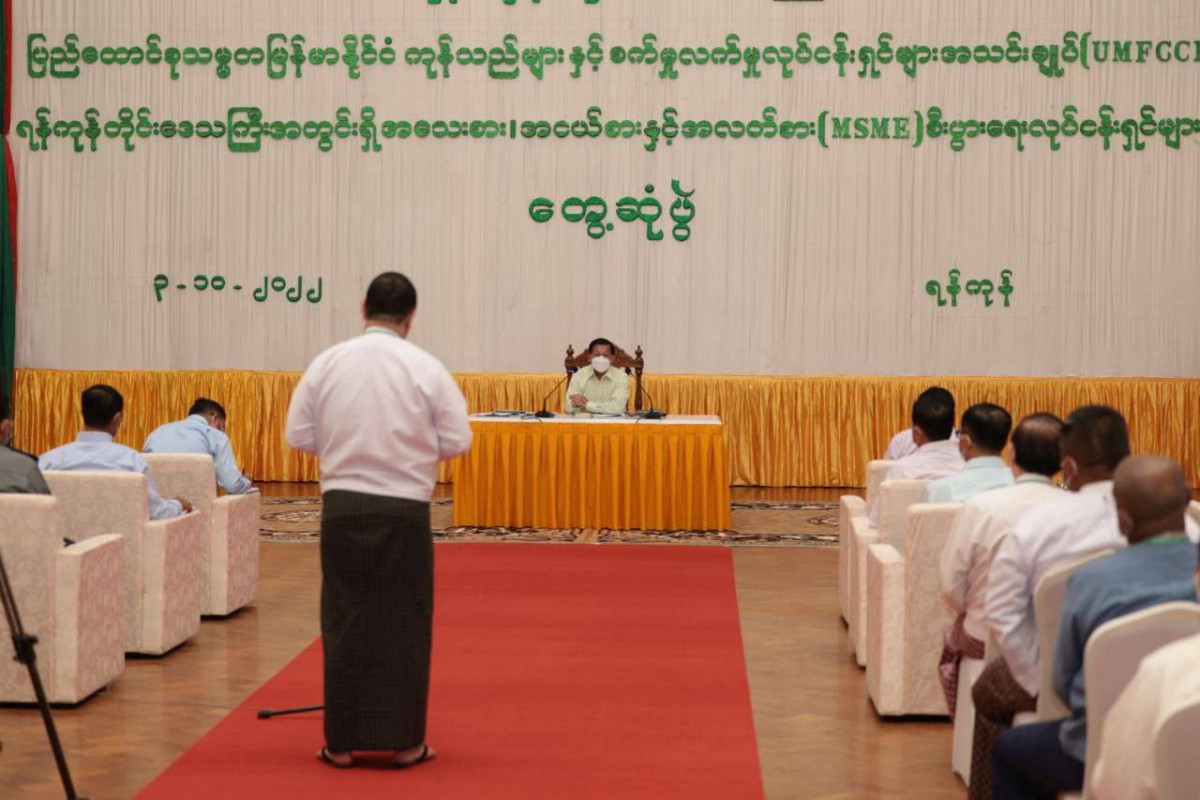Yangon, November (11)
Economists and researchers have criticized the military council’s use of various methods of financial control and restrictions in the economic sector, leading to the creation of a centralized system.
On October 31, the Department of Trade under the Military Council announced that imports
would only be allowed if they could show export earnings to another country.
In addition, importers have to pay through the relevant banks to import goods using export
earnings, and if the import value exceeds the bank account balance, the import license will not
be granted.
On the other hand, the military council is strictly checking the online registry system, MyCO, and is controlling the financial flows of companies.
On November 4, the military council’s Directorate of Investment and Company Administration (DICA) reported an increase in the number of companies facing legal action for failing to submit annual reports.
Therefore, in order to better understand the Myanmar Companies Act, DICA has announced that they will speed up inspections and take action against companies that do not follow the rules.

An economic researcher told Than Lwin Times, “The military council is heading towards the capital market system. The authorities make entrepreneurs dependent on them. In the past, entrepreneurs had independent rights, but now the current authorities have to work together with the Departments of Trade and Customs. The military council is attempting to strengthen the administrative power”.
On the other hand, chairman of the Central Bank, has put pressure on Hundi financial services, which do not have an official license to operate foreign currency transfers, to apply for the license.
Moreover, the authorities instructed Myanmar citizens abroad to remit the wages or salaries to the country via the licensed banks (authorized dealers of foreign exchange).
An economist opined that the move by the military council is an attempt to be delisted on anti-money laundering and counter terrorist-financing systems and to access foreign currency through legal channels.
The international money-laundering watchdog, the Financial Action Task Force (FATF) announced on October 21 that Myanmar has been placed on the blacklist for failing to address large number of strategic deficiencies in its anti-money laundering and counter terrorist-financing systems.
The military council has implemented substantial policy changes in the area of border trade as well as restrictions on the flow of foreign currency during the period of the past twenty-one months since the coup.
News-Than Lwin Times

